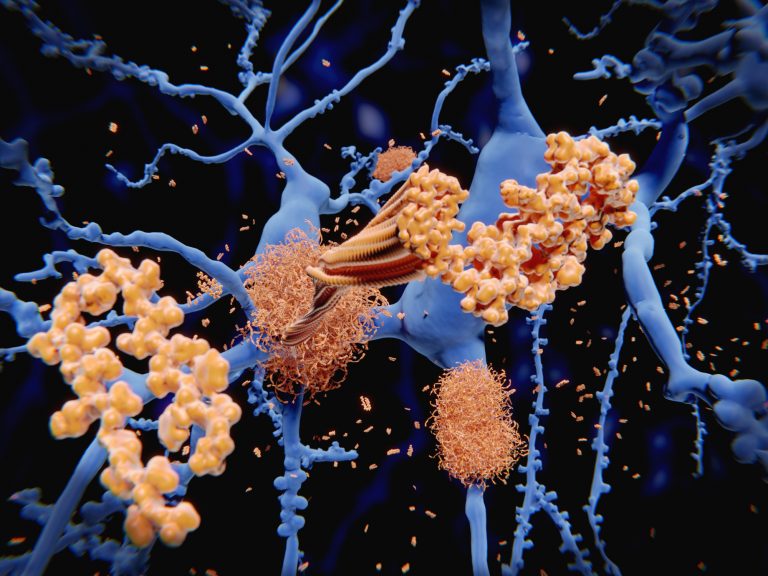
A new mouse study by a team co-led by scientists at Scripps Research has demonstrated how the production of amyloid beta Aβ in the brain is tightly regulated by cholesterol and how this early toxic event plays a role in the pathogenesis of Alzheimer’s disease (AD).
Their findings are published in the journal Proceedings of the National Academy of Sciences (PNAS). The research also helps explain why genetic studies link Alzheimer’s risk to a cholesterol-transporting protein called apolipoprotein E (apoE).
“The accumulation of Aβ in the brain appears to be a necessary event in the pathogenesis of AD,” wrote the researchers. “However, processes linked to the endogenous regulation of Aβ production are still not completely understood. Here, the authors show that Aβ accumulation in neurons is tightly regulated by cholesterol synthesis and apoE transport from astrocytes.”
“We showed that cholesterol is acting essentially as a signal in neurons that determines how much Aβ gets made—and thus it should be unsurprising that apoE, which carries the cholesterol to neurons, influences Alzheimer’s risk,” explained study co-senior author Scott Hansen, Ph.D., an associate professor in the department of molecular medicine at Scripps Research, Florida.
The other co-senior author of the study was Heather Ferris, M.D., Ph.D., assistant professor in the department of medicine at the University of Virginia School of Medicine. The study’s first author, Hao Wang, is a graduate student in the Hansen lab.
Cholesterol’s role has been suggested by many previous studies but never confirmed due to technological limitations. The scientists used super-resolution imaging to observe in cells and in the brains of live mice and tracked how cholesterol regulates Aβ production.
They focused on cholesterol produced in the brain by essential helper cells called astrocytes, and saw it was carried by apoE proteins to the outer membranes of neurons. The researchers showed that apoE and its cholesterol cargo bring APP into contact with nearby lipid rafts. They also discovered that blocking the flow of cholesterol would take APP out of contact with lipid rafts.
The scientists then did a series of experiments in aged “3xTg-AD” mice, that modeled Alzheimer’s. They observed that when they shut off astrocyte cholesterol production in the mice, Aβ production decreased to near-normal, and Aβ plaques disappeared. The study suggests that targeting this process is worthy of exploration for the potential to prevent Alzheimer’s progression.
The researchers stressed, however, that cholesterol is needed by the brain for many other processes. Hansen’s laboratory discovered in a 2020 study that disrupting the effect of cholesterol in neurons by general anesthetics can induce unconsciousness via a shared mechanism.
“You couldn’t just eliminate cholesterol in neurons, cholesterol is needed to set a proper threshold for both Aβ production and normal cognition,” Hansen said.
The findings offer new evidence of the underlying factors advancing the development of AD. The researchers are currently studying how apoE’s transport of cholesterol and maintenance of lipid rafts in the brain impacts not only Aβ production but also brain inflammation.
“There is the suggestion here of a central mechanism, involving cholesterol, that could help explain why both Aβ plaques and inflammation are so prominent in the Alzheimer’s brain,” Hansen said.













